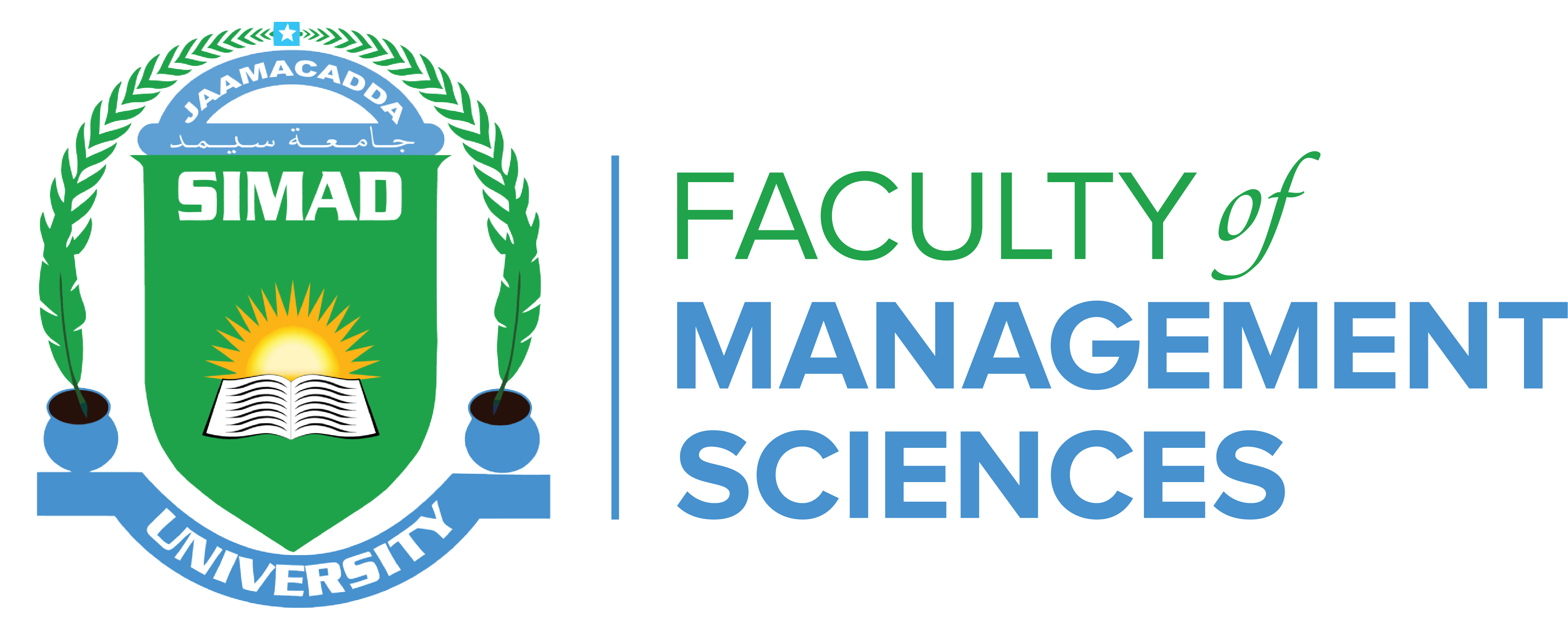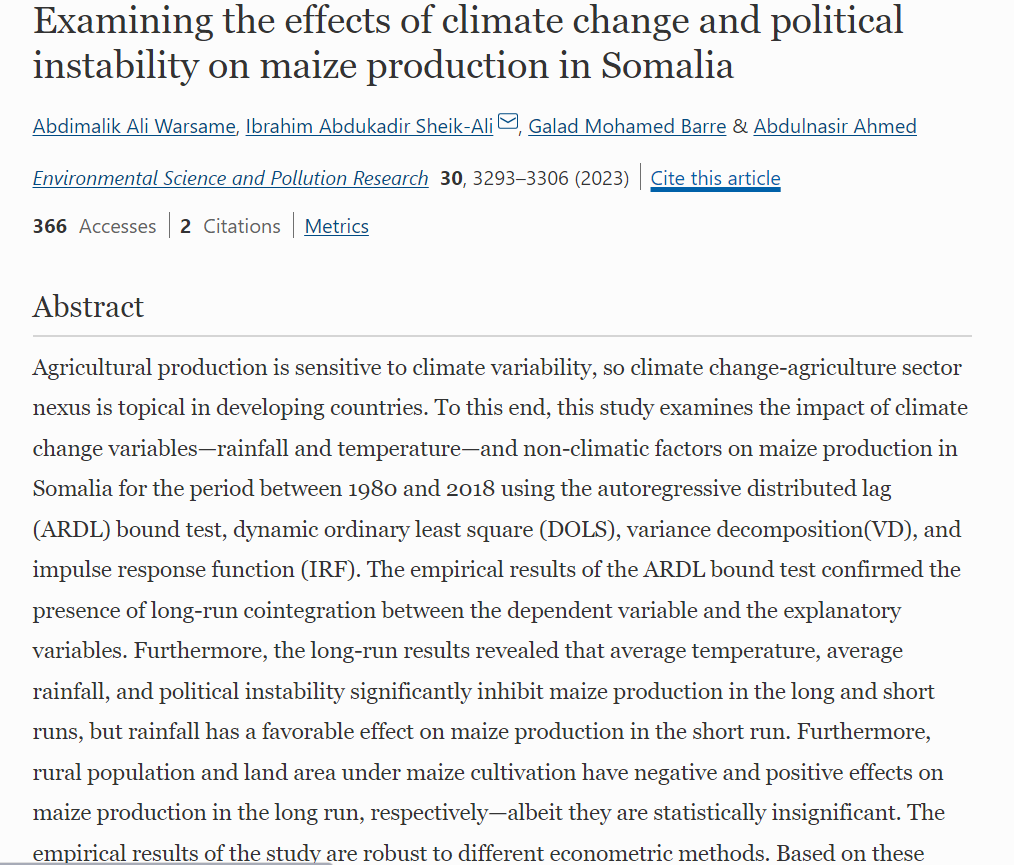Agricultural production is sensitive to climate variability, so the climate change-agriculture sector nexus is topical in developing countries. To this end, this study examines the impact of climate change variables—rainfall and temperature—and non-climatic factors on maize production in Somalia for the period between 1980 and 2018 using the auto-regressive distributed lag (ARDL) bound test, dynamic ordinary least square (DOLS), variance decomposition(VD), and impulse response function (IRF). The empirical results of the ARDL bound test confirmed the presence of long-run co-integration between the dependent variable and the explanatory variables. Furthermore, the long-run results revealed that average temperature, average rainfall, and political instability significantly inhibit maize production in the long and short runs, but rainfall has a favorable effect on maize production in the short run. Furthermore, rural population and land area under maize cultivation have negative and positive effects on maize production in the long run, respectively—albeit they are statistically insignificant. The empirical results of the study are robust to different econometric methods. Based on these findings, the study emphasizes the importance of the de-escalation of conflicts and the implementation of irrigation facilities which will enhance the productivity of maize crop production.
Supplementary Exam
Please be informed that the University Supplementary Examinations will be held on Monday, September 16, 2024. Supplementary Exam..


